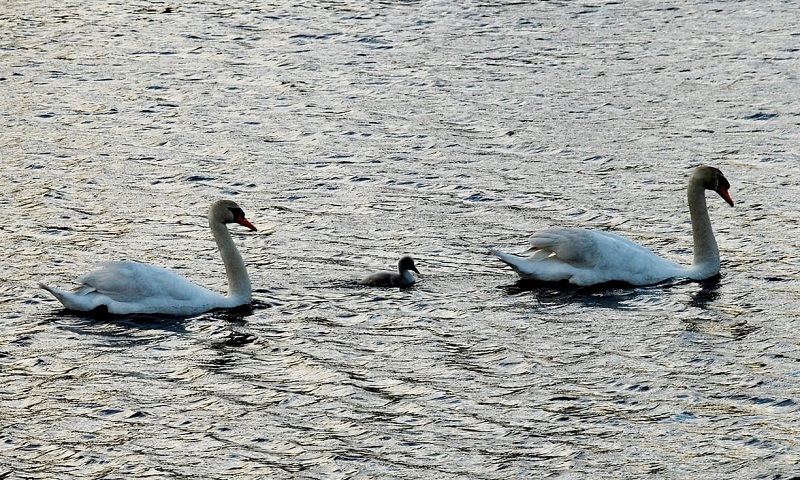A precious single cygnet nurtured in the marsh

The bell-beat of mute swans’ wings came with a grey dawn in early March. A pair of swans touched down in the river Teifi’s tidal reaches upstream of Cardigan town bridge. On wind-ruffled waters they kept proximity, gliding around in search of food, accompanied at respectful distance by small flocks of teal and unruly gangs of mallard drakes. The old shipwright from the small boatyard most days ventured out of his workshop to sit on the slipway, talk to the swans, feed them by hand. They would respond with sonorous high grunts that belied their name. Occasionally the huge cob, neck outstretched, tore off downriver, wings flailing, to warn off some presumptuous intruder. This was his territory and no other’s. By April, the closeness between the cob and the more delicate pen had become pronounced. Long mutual grooming sessions took place on the slipway. Their necks intertwined as they drifted on flooding tides. Around the middle of the month the pen disappeared. The cob held to his stretch of the water, looking muddier and more dishevelled as weeks passed. I kept watch, noted the inaccessible region of nearby Rosehill marsh to which he gravitated, presumed the nest site would be there among the reeds and hoped the otters that also inhabited the river would stay well clear. In the first week of June, scanning upriver at dawn, I saw the cob and pen paddling in golden light – and between the two of them was a single, black-billed ball of grey down. Over the next weeks, constantly looking for the cygnet’s presence, I was as fretful as a parent. One cold day the pair coasted along shallows at the farther bank, the cygnet nowhere to be seen. I focused the glass. And, there, between the pen’s folded wings, a tiny dark head was peering out.
Read More:

